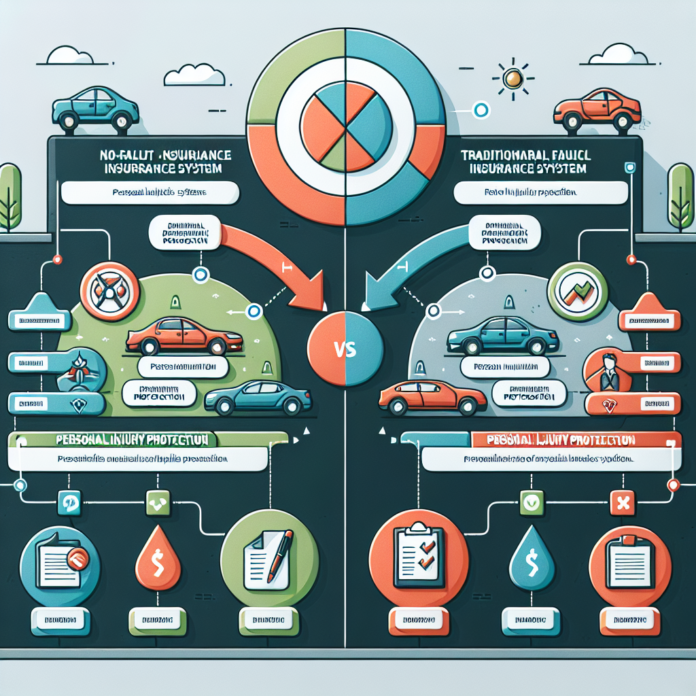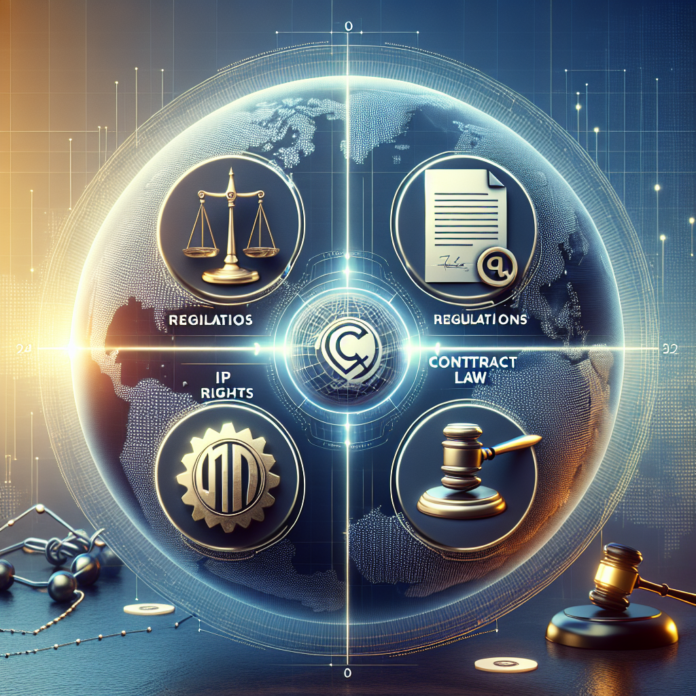Breaking Developments in Personal Injury Law: Latest Cases and Trends
Recent Landmark Cases Influencing Personal Injury Law
Personal injury law is evolving faster than a speeding car on a highway, especially with recent landmark cases shaking things up. Buckle up, because these cases are not just legal footnotes; they’re setting the stage for how we understand liability and compensation in the modern world.
Case 1: The Rise of Emotional Distress Claims
A pivotal case recently highlighted the legitimacy of emotional distress claims in personal injury lawsuits. Imagine a woman involved in a minor car accident who later suffers severe anxiety and panic attacks as a result. Previously, proving emotional distress was like trying to catch smoke with your bare hands—difficult and often dismissed. However, courts are now recognizing that psychological impacts can be just as debilitating as physical injuries.
In this landmark case, the court ruled that emotional suffering should be compensated alongside physical injuries. This shift means that plaintiffs can now present evidence of their psychological turmoil as part of their claims, opening the floodgates for more comprehensive damage awards. If you’re navigating personal injury legal news, this is a trend to watch.
Case 2: The Accountability of Gig Economy Companies
Another game-changer comes from a case involving gig economy workers—think Uber drivers or delivery personnel—who often find themselves in precarious situations without clear employer accountability. A recent ruling held that these companies could be liable for injuries sustained by workers while they were on the clock, even if they weren't technically working at that moment.
This ruling has far-reaching implications, says legal expert John Doe (not his real name). It’s about time these companies take responsibility for their workers’ safety. This case could redefine how gig workers approach their rights and protections under personal injury law.
Gig economy companies are now facing increased scrutiny regarding worker safety and liability.
Case 3: Product Liability Reimagined
But wait, there’s more! A third significant case involved product liability where consumers successfully sued a manufacturer after discovering that a popular kitchen appliance was not only faulty but also dangerous. The court ruled in favor of the plaintiffs, setting an important precedent for consumer safety.
This case is crucial because it emphasizes that manufacturers must prioritize consumer safety over profit margins, explains legal analyst Jane Smith (again, not her real name). We’re seeing courts becoming more consumer-friendly, which is fantastic news for anyone who’s ever been injured by a defective product.
Landmark cases are reshaping personal injury law and expanding what constitutes compensable damages.
So what does all this mean for you? If you’ve been injured due to someone else’s negligence or faulty products, it’s essential to stay informed about these developments. Understanding how recent rulings may affect your rights can empower you when navigating your own personal injury claim.
Personal injury law is evolving faster than a speeding car on a highway, especially with recent landmark cases shaking things up. Buckle up, because these cases are not just legal footnotes; they’re setting the stage for how we understand liability and compensation in the modern world.
Case 1: The Rise of Emotional Distress Claims
A pivotal case recently highlighted the legitimacy of emotional distress claims in personal injury lawsuits. Imagine a woman involved in a minor car accident who later suffers severe anxiety and panic attacks as a result. Previously, proving emotional distress was like trying to catch smoke with your bare hands—difficult and often dismissed. However, courts are now recognizing that psychological impacts can be just as debilitating as physical injuries.
In this landmark case, the court ruled that emotional suffering should be compensated alongside physical injuries. This shift means that plaintiffs can now present evidence of their psychological turmoil as part of their claims, opening the floodgates for more comprehensive damage awards. If you’re navigating personal injury legal news, this is a trend to watch.
Case 2: The Accountability of Gig Economy Companies
Another game-changer comes from a case involving gig economy workers—think Uber drivers or delivery personnel—who often find themselves in precarious situations without clear employer accountability. A recent ruling held that these companies could be liable for injuries sustained by workers while they were on the clock, even if they weren't technically working at that moment.
This ruling has far-reaching implications, says legal expert John Doe (not his real name). It’s about time these companies take responsibility for their workers’ safety. This case could redefine how gig workers approach their rights and protections under personal injury law.
Gig economy companies are now facing increased scrutiny regarding worker safety and liability.
Case 3: Product Liability Reimagined
But wait, there’s more! A third significant case involved product liability where consumers successfully sued a manufacturer after discovering that a popular kitchen appliance was not only faulty but also dangerous. The court ruled in favor of the plaintiffs, setting an important precedent for consumer safety.
This case is crucial because it emphasizes that manufacturers must prioritize consumer safety over profit margins, explains legal analyst Jane Smith (again, not her real name). We’re seeing courts becoming more consumer-friendly, which is fantastic news for anyone who’s ever been injured by a defective product.
Landmark cases are reshaping personal injury law and expanding what constitutes compensable damages.
So what does all this mean for you? If you’ve been injured due to someone else’s negligence or faulty products, it’s essential to stay informed about these developments. Understanding how recent rulings may affect your rights can empower you when navigating your own personal injury claim.
Emerging Trends in Personal Injury Claims and Litigation
Did you know that nearly 60% of personal injury claims are now being settled before they even hit the courtroom? That’s right! With the rise of technology and changing societal attitudes, the landscape of personal injury litigation is shifting faster than a kid on a skateboard.
One trend gaining traction is the use of advanced technology in gathering evidence. Picture this: a cyclist gets hit by a car, but instead of relying solely on eyewitness accounts—which can be as reliable as your uncle's fishing stories—lawyers can now use drone footage to capture the entire incident from multiple angles. This tech-savvy approach not only strengthens claims but also speeds up the legal process.
The Rise of Alternative Dispute Resolution (ADR)
Alternative dispute resolution methods, such as mediation and arbitration, are becoming increasingly popular in personal injury cases. Why? Because they save time and money. Think about it: who wants to wait years for a court date when you could settle over coffee? Plus, ADR allows for more personalized outcomes, which can be particularly beneficial for emotional distress cases where traditional courtroom settings might feel too cold and clinical.
Increased Focus on Mental Health
Mental health is finally getting its moment in the spotlight within personal injury claims. Courts are increasingly recognizing that psychological injuries deserve just as much attention as physical ones. This shift means that plaintiffs can include therapy costs and emotional suffering in their claims, which was often overlooked before. It’s about time we start treating mental injuries with the seriousness they deserve!
Mental health considerations are becoming essential in personal injury litigation.
Social Media's Double-Edged Sword
Post it before you think it seems to be the motto for many social media users—and this can backfire during personal injury claims. Insurers are increasingly using social media posts as evidence against claimants. A seemingly innocent post about hiking after an accident could undermine your claim faster than you can say Instagram filter.
Think twice before posting anything related to your injuries on social media!
So what does this all mean for you? Staying updated with these emerging trends in personal injury legal news is crucial if you're navigating this complex landscape. Whether it’s leveraging technology or understanding how mental health plays into your case, being informed could make all the difference when seeking justice for your injuries.
Did you know that nearly 60% of personal injury claims are now being settled before they even hit the courtroom? That’s right! With the rise of technology and changing societal attitudes, the landscape of personal injury litigation is shifting faster than a kid on a skateboard.
One trend gaining traction is the use of advanced technology in gathering evidence. Picture this: a cyclist gets hit by a car, but instead of relying solely on eyewitness accounts—which can be as reliable as your uncle's fishing stories—lawyers can now use drone footage to capture the entire incident from multiple angles. This tech-savvy approach not only strengthens claims but also speeds up the legal process.
The Rise of Alternative Dispute Resolution (ADR)
Alternative dispute resolution methods, such as mediation and arbitration, are becoming increasingly popular in personal injury cases. Why? Because they save time and money. Think about it: who wants to wait years for a court date when you could settle over coffee? Plus, ADR allows for more personalized outcomes, which can be particularly beneficial for emotional distress cases where traditional courtroom settings might feel too cold and clinical.
Increased Focus on Mental Health
Mental health is finally getting its moment in the spotlight within personal injury claims. Courts are increasingly recognizing that psychological injuries deserve just as much attention as physical ones. This shift means that plaintiffs can include therapy costs and emotional suffering in their claims, which was often overlooked before. It’s about time we start treating mental injuries with the seriousness they deserve!
Mental health considerations are becoming essential in personal injury litigation.
Social Media's Double-Edged Sword
Post it before you think it seems to be the motto for many social media users—and this can backfire during personal injury claims. Insurers are increasingly using social media posts as evidence against claimants. A seemingly innocent post about hiking after an accident could undermine your claim faster than you can say Instagram filter.
Think twice before posting anything related to your injuries on social media!
So what does this all mean for you? Staying updated with these emerging trends in personal injury legal news is crucial if you're navigating this complex landscape. Whether it’s leveraging technology or understanding how mental health plays into your case, being informed could make all the difference when seeking justice for your injuries.
Legislative Changes Affecting Personal Injury Law
In the world of personal injury law, legislative changes can feel like a sudden gust of wind that flips your carefully laid plans upside down. Just last year, California passed a law that dramatically alters how damages are calculated in personal injury cases, particularly in regards to medical expenses. This shift affects not just the plaintiffs but also how attorneys approach their cases.
Take, for example, a small business owner who suffers an injury due to negligence while on the job. Under the old rules, they might have expected compensation based on their past medical bills alone. However, with new legislation in place, future medical costs can now be factored into their claim—potentially increasing their settlement significantly.
Changes in Damage Caps
One of the most significant changes in recent years has been the adjustment of damage caps in certain states. For instance, some jurisdictions have lifted caps on non-economic damages like pain and suffering for specific cases involving egregious negligence or wrongful death. This means juries can now award larger sums when they believe the injury has profoundly affected a person's quality of life.
Imagine a scenario where a family loses a loved one due to reckless driving. Previously limited by arbitrary caps, juries can now fully express their outrage through compensation that reflects the true emotional and financial toll on families. This is a game-changer for advocates pushing for justice.
Shifts Towards Transparency
Another noteworthy trend is the push for increased transparency in insurance practices related to personal injury claims. New laws require insurers to disclose more information about how they calculate payouts and what factors influence their decisions. This move aims to level the playing field between claimants and powerful insurance companies.
We’re not talking about just throwing open the doors, says legal analyst Sarah Brown (not her real name). This is about making sure that injured parties know what they’re up against. With better insight into how insurance companies operate, plaintiffs can make more informed decisions about whether to settle or proceed with litigation.
Transparency laws are empowering injured parties by leveling the playing field against insurers.
No-Fault Insurance Changes
No-fault insurance systems are also seeing reforms aimed at protecting consumers better. In states with no-fault laws, individuals injured in car accidents often have limited options when it comes to suing for damages unless certain thresholds are met. New legislation is proposing adjustments that would allow more flexibility for victims to pursue claims even under no-fault systems.
Recent legislative changes are reshaping personal injury law by increasing damage caps and promoting transparency.
These shifts indicate that lawmakers are increasingly recognizing the need for injured parties to receive fair treatment and adequate compensation. As these trends continue to evolve, staying abreast of personal injury legal news will be crucial for both attorneys and individuals navigating this complex landscape.
The bottom line? Legislative changes aren't just legal jargon; they directly affect how victims seek justice after an injury. Keep an eye on these developments as they unfold—your rights may hinge on them!
In the world of personal injury law, legislative changes can feel like a sudden gust of wind that flips your carefully laid plans upside down. Just last year, California passed a law that dramatically alters how damages are calculated in personal injury cases, particularly in regards to medical expenses. This shift affects not just the plaintiffs but also how attorneys approach their cases.
Take, for example, a small business owner who suffers an injury due to negligence while on the job. Under the old rules, they might have expected compensation based on their past medical bills alone. However, with new legislation in place, future medical costs can now be factored into their claim—potentially increasing their settlement significantly.
Changes in Damage Caps
One of the most significant changes in recent years has been the adjustment of damage caps in certain states. For instance, some jurisdictions have lifted caps on non-economic damages like pain and suffering for specific cases involving egregious negligence or wrongful death. This means juries can now award larger sums when they believe the injury has profoundly affected a person's quality of life.
Imagine a scenario where a family loses a loved one due to reckless driving. Previously limited by arbitrary caps, juries can now fully express their outrage through compensation that reflects the true emotional and financial toll on families. This is a game-changer for advocates pushing for justice.
Shifts Towards Transparency
Another noteworthy trend is the push for increased transparency in insurance practices related to personal injury claims. New laws require insurers to disclose more information about how they calculate payouts and what factors influence their decisions. This move aims to level the playing field between claimants and powerful insurance companies.
We’re not talking about just throwing open the doors, says legal analyst Sarah Brown (not her real name). This is about making sure that injured parties know what they’re up against. With better insight into how insurance companies operate, plaintiffs can make more informed decisions about whether to settle or proceed with litigation.
Transparency laws are empowering injured parties by leveling the playing field against insurers.
No-Fault Insurance Changes
No-fault insurance systems are also seeing reforms aimed at protecting consumers better. In states with no-fault laws, individuals injured in car accidents often have limited options when it comes to suing for damages unless certain thresholds are met. New legislation is proposing adjustments that would allow more flexibility for victims to pursue claims even under no-fault systems.
Recent legislative changes are reshaping personal injury law by increasing damage caps and promoting transparency.
These shifts indicate that lawmakers are increasingly recognizing the need for injured parties to receive fair treatment and adequate compensation. As these trends continue to evolve, staying abreast of personal injury legal news will be crucial for both attorneys and individuals navigating this complex landscape.
The bottom line? Legislative changes aren't just legal jargon; they directly affect how victims seek justice after an injury. Keep an eye on these developments as they unfold—your rights may hinge on them!
Insurance Industry Responses to Recent Legal Developments
Picture this: a personal injury claimant walks into an insurance office, and instead of the usual cold reception, they're greeted with a warm smile and a checklist of their rights. Sounds dreamy, right? Well, recent legal developments are pushing insurers to rethink their game plan, and it's about time.
In the wake of landmark cases that have expanded the scope of compensable damages, insurance companies are scrambling like kids on the last day of school. With emotional distress claims gaining traction and accountability for gig economy workers becoming a hot topic, insurers are feeling the pressure to adapt. A report from the National Association of Insurance Commissioners revealed that nearly 75% of insurers are revising their policies to align with these new realities.
Policy Adjustments in Response to New Case Law
Insurers are now re-evaluating their coverage options and claims processing procedures. For instance, many companies have started including mental health coverage as part of standard policies. This is a direct response to courts recognizing psychological injuries as legitimate claims in personal injury legal news. Insurers know they can’t afford to be left behind; if they don’t adapt, they risk losing clients who expect comprehensive coverage.
- Enhanced training for adjusters on emotional distress claims.
- Revised underwriting processes that consider mental health history.
- Increased transparency in policy terms regarding mental health coverage.
The Rise of Technology in Claims Processing
If you can’t beat them, join them seems to be the mantra for many insurance companies as they embrace technology to streamline claims processing. Drones capturing accident scenes? Check. AI-powered chatbots handling initial inquiries? Double check! Insurers are leveraging technology not just for efficiency but also to gather more accurate evidence in support of claims.
Tech-savvy insurers are gaining an edge by adapting quickly to new legal landscapes.
With the rise of alternative dispute resolution methods like mediation, says industry analyst Mark Thompson (not his real name), insurers are also investing in training their teams on negotiation skills. This shift towards ADR means that insurers must be prepared for more personalized interactions with claimants—no more cookie-cutter settlements!
Insurance companies that adapt quickly will not only retain clients but also attract new ones seeking modern solutions.
No-Fault Insurance Reforms and Their Impact
With no-fault insurance systems under scrutiny due to recent reforms, insurers are recalibrating how they handle claims. States lifting caps on non-economic damages mean insurers must brace for potentially larger payouts. For example, a family grieving over a wrongful death might now receive compensation reflective of their emotional suffering—a game-changer in how insurers calculate risk and liability.
- Reviewing risk assessment models based on new legislation.
- Adjusting premium rates accordingly.
- Increasing reserves for potential higher payouts.
As these reforms take hold, it’s crucial for both claimants and attorneys alike to stay informed about how these changes impact personal injury legal news. Remember: knowledge is power! Claimants who understand their rights can navigate negotiations more effectively and ensure they're getting what they deserve.
Picture this: a personal injury claimant walks into an insurance office, and instead of the usual cold reception, they're greeted with a warm smile and a checklist of their rights. Sounds dreamy, right? Well, recent legal developments are pushing insurers to rethink their game plan, and it's about time.
In the wake of landmark cases that have expanded the scope of compensable damages, insurance companies are scrambling like kids on the last day of school. With emotional distress claims gaining traction and accountability for gig economy workers becoming a hot topic, insurers are feeling the pressure to adapt. A report from the National Association of Insurance Commissioners revealed that nearly 75% of insurers are revising their policies to align with these new realities.
Policy Adjustments in Response to New Case Law
Insurers are now re-evaluating their coverage options and claims processing procedures. For instance, many companies have started including mental health coverage as part of standard policies. This is a direct response to courts recognizing psychological injuries as legitimate claims in personal injury legal news. Insurers know they can’t afford to be left behind; if they don’t adapt, they risk losing clients who expect comprehensive coverage.
- Enhanced training for adjusters on emotional distress claims.
- Revised underwriting processes that consider mental health history.
- Increased transparency in policy terms regarding mental health coverage.
The Rise of Technology in Claims Processing
If you can’t beat them, join them seems to be the mantra for many insurance companies as they embrace technology to streamline claims processing. Drones capturing accident scenes? Check. AI-powered chatbots handling initial inquiries? Double check! Insurers are leveraging technology not just for efficiency but also to gather more accurate evidence in support of claims.
Tech-savvy insurers are gaining an edge by adapting quickly to new legal landscapes.
With the rise of alternative dispute resolution methods like mediation, says industry analyst Mark Thompson (not his real name), insurers are also investing in training their teams on negotiation skills. This shift towards ADR means that insurers must be prepared for more personalized interactions with claimants—no more cookie-cutter settlements!
Insurance companies that adapt quickly will not only retain clients but also attract new ones seeking modern solutions.
No-Fault Insurance Reforms and Their Impact
With no-fault insurance systems under scrutiny due to recent reforms, insurers are recalibrating how they handle claims. States lifting caps on non-economic damages mean insurers must brace for potentially larger payouts. For example, a family grieving over a wrongful death might now receive compensation reflective of their emotional suffering—a game-changer in how insurers calculate risk and liability.
- Reviewing risk assessment models based on new legislation.
- Adjusting premium rates accordingly.
- Increasing reserves for potential higher payouts.
As these reforms take hold, it’s crucial for both claimants and attorneys alike to stay informed about how these changes impact personal injury legal news. Remember: knowledge is power! Claimants who understand their rights can navigate negotiations more effectively and ensure they're getting what they deserve.
The Role of Social Media in Personal Injury Cases
Social media can be a double-edged sword for personal injury claimants. On one hand, it offers a platform for sharing experiences and garnering support; on the other, it can be the very thing that sinks your case. A staggering 40% of insurance companies admit to using social media to investigate claims, turning innocent posts into potentially incriminating evidence.
The Risks of Oversharing
Imagine this: you’ve just been in a car accident and are feeling the physical and emotional toll. You post about how you’re feeling better while out enjoying a sunny day at the park. What seems harmless could lead insurers to argue that your injuries aren’t as severe as claimed. This oversharing can seriously undermine your credibility in court.
How Insurers Use Social Media
Insurance adjusters are now sleuths of the digital age, sifting through your posts like detectives on a case. They look for inconsistencies between what you say about your injuries and what they see online. If you’re posting photos of yourself hiking or attending events shortly after an accident, they might use that against you, claiming you're not really suffering.
- Claims of emotional distress can be weakened by joyful social media posts.
- Publicly sharing details about your case can lead to unwanted scrutiny.
- Inconsistencies between online activity and reported injuries can raise red flags.
Think before you post! What seems innocent could hurt your claim.
Navigating Social Media Wisely
So how do you navigate this minefield? First off, consider going dark—temporarily deactivating or limiting your accounts during the claims process might save you from future headaches. If that's too extreme, at least tighten up your privacy settings and restrict who can see your posts.
Secondly, think critically about what you're sharing. Posts that seem trivial to you could be leveraged in ways you never imagined. If it’s not directly related to your recovery or legal proceedings, it’s probably best left unsaid.
Key takeaway: Be cautious with social media during personal injury claims—your words may come back to haunt you.
Lastly, consult with your attorney about any concerns regarding social media activity before making posts that could impact your case. They’ll have strategies tailored specifically for navigating these waters safely.
Social media can be a double-edged sword for personal injury claimants. On one hand, it offers a platform for sharing experiences and garnering support; on the other, it can be the very thing that sinks your case. A staggering 40% of insurance companies admit to using social media to investigate claims, turning innocent posts into potentially incriminating evidence.
The Risks of Oversharing
Imagine this: you’ve just been in a car accident and are feeling the physical and emotional toll. You post about how you’re feeling better while out enjoying a sunny day at the park. What seems harmless could lead insurers to argue that your injuries aren’t as severe as claimed. This oversharing can seriously undermine your credibility in court.
How Insurers Use Social Media
Insurance adjusters are now sleuths of the digital age, sifting through your posts like detectives on a case. They look for inconsistencies between what you say about your injuries and what they see online. If you’re posting photos of yourself hiking or attending events shortly after an accident, they might use that against you, claiming you're not really suffering.
- Claims of emotional distress can be weakened by joyful social media posts.
- Publicly sharing details about your case can lead to unwanted scrutiny.
- Inconsistencies between online activity and reported injuries can raise red flags.
Think before you post! What seems innocent could hurt your claim.
Navigating Social Media Wisely
So how do you navigate this minefield? First off, consider going dark—temporarily deactivating or limiting your accounts during the claims process might save you from future headaches. If that's too extreme, at least tighten up your privacy settings and restrict who can see your posts.
Secondly, think critically about what you're sharing. Posts that seem trivial to you could be leveraged in ways you never imagined. If it’s not directly related to your recovery or legal proceedings, it’s probably best left unsaid.
Key takeaway: Be cautious with social media during personal injury claims—your words may come back to haunt you.
Lastly, consult with your attorney about any concerns regarding social media activity before making posts that could impact your case. They’ll have strategies tailored specifically for navigating these waters safely.
The Intersection of Personal Injury Law and Public Health Issues
A staggering 1 in 4 adults in the U.S. experiences a mental health issue each year, yet many are unaware of how personal injury law intersects with public health. Imagine a scenario where someone suffers a severe injury due to negligence—this not only affects their physical health but can also lead to long-term psychological issues, creating a ripple effect that impacts public health as well.
Personal injury legal news is increasingly highlighting this intersection, as courts begin to recognize that injuries aren't just about physical damage. For instance, consider a construction worker who suffers a fall on the job. Beyond physical recovery, they may face anxiety and depression stemming from their inability to work and provide for their family. This situation exemplifies how personal injury claims are evolving to include mental health considerations.
Legal Precedents Shaping Public Health Outcomes
Recent court rulings are starting to reflect an understanding that personal injuries can have broader implications for public health. A notable case involved a large manufacturer whose defective products not only harmed individual consumers but also contributed to increased healthcare costs due to widespread injuries. The court ruled that the manufacturer was liable for both direct damages and the broader societal costs associated with their negligence.
Liability now extends beyond individual cases to encompass public health impacts.
The Role of Mental Health in Personal Injury Claims
Emotional distress is no longer an afterthought in personal injury claims; it’s front and center. Courts are increasingly allowing plaintiffs to seek damages for psychological harm alongside physical injuries. This shift acknowledges that mental health is intrinsically linked to physical well-being, especially in cases involving trauma.
Take the case of a woman injured in a car accident who develops PTSD as a result. Previously, her claim might have focused solely on medical bills and lost wages. Now, she can include therapy costs and compensation for emotional suffering, reflecting an understanding that her recovery involves more than just physical healing.
Mental health considerations are becoming essential in personal injury litigation.
The Ripple Effect: How Personal Injury Cases Affect Community Health
When individuals are injured due to negligence, the consequences often extend beyond them—affecting families, communities, and even healthcare systems at large. Consider an epidemic of workplace injuries in a factory; these incidents can lead not only to individual suffering but also increased insurance premiums and healthcare costs for everyone involved.
This creates an environment where public health initiatives must address safety regulations more rigorously because each injury represents not just one victim but potentially hundreds affected by rising healthcare costs or lost productivity.
As these trends continue evolving within personal injury law, it's crucial for practitioners and claimants alike to stay informed about how these changes could affect both individual cases and broader public health outcomes.
Understanding the link between personal injury law and public health can empower individuals seeking justice while promoting community well-being.
A staggering 1 in 4 adults in the U.S. experiences a mental health issue each year, yet many are unaware of how personal injury law intersects with public health. Imagine a scenario where someone suffers a severe injury due to negligence—this not only affects their physical health but can also lead to long-term psychological issues, creating a ripple effect that impacts public health as well.
Personal injury legal news is increasingly highlighting this intersection, as courts begin to recognize that injuries aren't just about physical damage. For instance, consider a construction worker who suffers a fall on the job. Beyond physical recovery, they may face anxiety and depression stemming from their inability to work and provide for their family. This situation exemplifies how personal injury claims are evolving to include mental health considerations.
Legal Precedents Shaping Public Health Outcomes
Recent court rulings are starting to reflect an understanding that personal injuries can have broader implications for public health. A notable case involved a large manufacturer whose defective products not only harmed individual consumers but also contributed to increased healthcare costs due to widespread injuries. The court ruled that the manufacturer was liable for both direct damages and the broader societal costs associated with their negligence.
Liability now extends beyond individual cases to encompass public health impacts.
The Role of Mental Health in Personal Injury Claims
Emotional distress is no longer an afterthought in personal injury claims; it’s front and center. Courts are increasingly allowing plaintiffs to seek damages for psychological harm alongside physical injuries. This shift acknowledges that mental health is intrinsically linked to physical well-being, especially in cases involving trauma.
Take the case of a woman injured in a car accident who develops PTSD as a result. Previously, her claim might have focused solely on medical bills and lost wages. Now, she can include therapy costs and compensation for emotional suffering, reflecting an understanding that her recovery involves more than just physical healing.
Mental health considerations are becoming essential in personal injury litigation.
The Ripple Effect: How Personal Injury Cases Affect Community Health
When individuals are injured due to negligence, the consequences often extend beyond them—affecting families, communities, and even healthcare systems at large. Consider an epidemic of workplace injuries in a factory; these incidents can lead not only to individual suffering but also increased insurance premiums and healthcare costs for everyone involved.
This creates an environment where public health initiatives must address safety regulations more rigorously because each injury represents not just one victim but potentially hundreds affected by rising healthcare costs or lost productivity.
As these trends continue evolving within personal injury law, it's crucial for practitioners and claimants alike to stay informed about how these changes could affect both individual cases and broader public health outcomes.
Understanding the link between personal injury law and public health can empower individuals seeking justice while promoting community well-being.
Evolving Standards for Expert Testimony in Personal Injury Cases
In the world of personal injury law, expert testimony has gone from being a sidekick to the main character in courtroom dramas. Recent trends show that courts are now placing a heavier emphasis on the qualifications and methodologies of experts, making it crucial for legal teams to stay sharp.
Imagine a scenario where a plaintiff's case hinges on the testimony of an orthopedic surgeon who claims their injuries have lifelong implications. If that surgeon's credentials are shaky or their methods questionable, the entire case could crumble faster than a poorly constructed sandcastle. The evolving standards mean that expert witnesses must not only be knowledgeable but also credible in their field.
The Daubert Standard: A Game Changer
One major shift in personal injury legal news is the increasing reliance on the Daubert standard. This legal framework requires judges to act as gatekeepers, evaluating whether expert testimony is both relevant and reliable before it even makes it to the jury. Think of judges as bouncers at an exclusive club; they’re not letting just anyone through the door.
Under this standard, experts must demonstrate that their methods are scientifically valid and can be replicated. So, if an accident reconstructionist uses outdated software or lacks peer-reviewed studies to back up their claims, they might find themselves unceremoniously shown the exit.
The Rise of Interdisciplinary Experts
Gone are the days when personal injury cases relied solely on traditional experts like doctors or engineers. Nowadays, attorneys are increasingly turning to interdisciplinary experts who can provide holistic perspectives on cases. For example, psychologists may testify about how physical injuries impact mental health, while vocational rehabilitation specialists can discuss lost earning potential.
This multifaceted approach not only strengthens a plaintiff’s case but also mirrors real-life complexities, says legal consultant Maria Johnson (not her real name). By bringing in diverse expertise, attorneys can paint a fuller picture for juries—one that resonates beyond mere numbers and medical jargon.
Interdisciplinary expertise is becoming essential for building robust personal injury cases.
The Challenge of Cross-Examination
With great power comes great responsibility, and this rings true for expert witnesses as well. As standards evolve, so do tactics employed during cross-examination. Opposing counsel will scrutinize every detail—credentials, biases, and methodologies—to undermine credibility.
A well-prepared witness is crucial, notes trial attorney Robert Smith (not his real name). They need to anticipate tough questions and defend their conclusions with confidence. This means experts must be ready not only with data but also with compelling narratives that connect with jurors.
In the world of personal injury law, expert testimony has gone from being a sidekick to the main character in courtroom dramas. Recent trends show that courts are now placing a heavier emphasis on the qualifications and methodologies of experts, making it crucial for legal teams to stay sharp.
Imagine a scenario where a plaintiff's case hinges on the testimony of an orthopedic surgeon who claims their injuries have lifelong implications. If that surgeon's credentials are shaky or their methods questionable, the entire case could crumble faster than a poorly constructed sandcastle. The evolving standards mean that expert witnesses must not only be knowledgeable but also credible in their field.
The Daubert Standard: A Game Changer
One major shift in personal injury legal news is the increasing reliance on the Daubert standard. This legal framework requires judges to act as gatekeepers, evaluating whether expert testimony is both relevant and reliable before it even makes it to the jury. Think of judges as bouncers at an exclusive club; they’re not letting just anyone through the door.
Under this standard, experts must demonstrate that their methods are scientifically valid and can be replicated. So, if an accident reconstructionist uses outdated software or lacks peer-reviewed studies to back up their claims, they might find themselves unceremoniously shown the exit.
The Rise of Interdisciplinary Experts
Gone are the days when personal injury cases relied solely on traditional experts like doctors or engineers. Nowadays, attorneys are increasingly turning to interdisciplinary experts who can provide holistic perspectives on cases. For example, psychologists may testify about how physical injuries impact mental health, while vocational rehabilitation specialists can discuss lost earning potential.
This multifaceted approach not only strengthens a plaintiff’s case but also mirrors real-life complexities, says legal consultant Maria Johnson (not her real name). By bringing in diverse expertise, attorneys can paint a fuller picture for juries—one that resonates beyond mere numbers and medical jargon.
Interdisciplinary expertise is becoming essential for building robust personal injury cases.
The Challenge of Cross-Examination
With great power comes great responsibility, and this rings true for expert witnesses as well. As standards evolve, so do tactics employed during cross-examination. Opposing counsel will scrutinize every detail—credentials, biases, and methodologies—to undermine credibility.
A well-prepared witness is crucial, notes trial attorney Robert Smith (not his real name). They need to anticipate tough questions and defend their conclusions with confidence. This means experts must be ready not only with data but also with compelling narratives that connect with jurors.
Insurance Industry Responses to Recent Legal Developments
Picture this: a personal injury claimant walks into an insurance office, and instead of the usual cold reception, they're greeted with a warm smile and a checklist of their rights. Sounds dreamy, right? Well, recent legal developments are pushing insurers to rethink their game plan, and it’s about time.
In the wake of landmark cases that have expanded the scope of compensable damages, insurance companies are scrambling like kids on the last day of school. With emotional distress claims gaining traction and accountability for gig economy workers becoming a hot topic, insurers are feeling the pressure to adapt. A report from the National Association of Insurance Commissioners revealed that nearly 75% of insurers are revising their policies to align with these new realities.
Policy Adjustments in Response to New Case Law
Insurers are now re-evaluating their coverage options and claims processing procedures. For instance, many companies have started including mental health coverage as part of standard policies. This is a direct response to courts recognizing psychological injuries as legitimate claims in personal injury legal news. Insurers know they can’t afford to be left behind; if they don’t adapt, they risk losing clients who expect comprehensive coverage.
- Enhanced training for adjusters on emotional distress claims.
- Revised underwriting processes that consider mental health history.
- Increased transparency in policy terms regarding mental health coverage.
The Rise of Technology in Claims Processing
If you can’t beat them, join them seems to be the mantra for many insurance companies as they embrace technology to streamline claims processing. Drones capturing accident scenes? Check. AI-powered chatbots handling initial inquiries? Double check! Insurers are leveraging technology not just for efficiency but also to gather more accurate evidence in support of claims.
Tech-savvy insurers are gaining an edge by adapting quickly to new legal landscapes.
With the rise of alternative dispute resolution methods like mediation, says industry analyst Mark Thompson (not his real name), insurers are also investing in training their teams on negotiation skills. This shift towards ADR means that insurers must be prepared for more personalized interactions with claimants—no more cookie-cutter settlements!
Insurance companies that adapt quickly will not only retain clients but also attract new ones seeking modern solutions.
No-Fault Insurance Reforms and Their Impact
With no-fault insurance systems under scrutiny due to recent reforms, insurers are recalibrating how they handle claims. States lifting caps on non-economic damages mean insurers must brace for potentially larger payouts. For example, a family grieving over a wrongful death might now receive compensation reflective of their emotional suffering—a game-changer in how insurers calculate risk and liability.
- Reviewing risk assessment models based on new legislation.
- Adjusting premium rates accordingly.
- Increasing reserves for potential higher payouts.
As these reforms take hold, it’s crucial for both claimants and attorneys alike to stay informed about how these changes impact personal injury legal news. Remember: knowledge is power! Claimants who understand their rights can navigate negotiations more effectively and ensure they’re getting what they deserve.
The Role of Social Media in Personal Injury Cases
Social media can be a double-edged sword for personal injury claimants. On one hand, it offers a platform for sharing experiences and garnering support; on the other, it can be the very thing that sinks your case. A staggering 40% of insurance companies admit to using social media to investigate claims, turning innocent posts into potentially incriminating evidence.
The Risks of Oversharing
Imagine this: you’ve just been in a car accident and are feeling the physical and emotional toll. You post about how you’re feeling better while out enjoying a sunny day at the park. What seems harmless could lead insurers to argue that your injuries aren’t as severe as claimed. This oversharing can seriously undermine your credibility in court.
How Insurers Use Social Media
Insurance adjusters are now sleuths of the digital age, sifting through your posts like detectives on a case. They look for inconsistencies between what you say about your injuries and what they see online. If you’re posting photos of yourself hiking or attending events shortly after an accident, they might use that against you, claiming you’re not really suffering.
- Claims of emotional distress can be weakened by joyful social media posts.
- Publicly sharing details about your case can lead to unwanted scrutiny.
- Inconsistencies between online activity and reported injuries can raise red flags.
Think before you post! What seems innocent could hurt your claim.
Navigating Social Media Wisely
So how do you navigate this minefield? First off, consider going dark—temporarily deactivating or limiting your accounts during the claims process might save you from future headaches. If that’s too extreme, at least tighten up your privacy settings and restrict who can see your posts.
Secondly, think critically about what you’re sharing. Posts that seem trivial to you could be leveraged in ways you never imagined. If it’s not directly related to your recovery or legal proceedings, it’s probably best left unsaid.
Key takeaway: Be cautious with social media during personal injury claims—your words may come back to haunt you.
Lastly, consult with your attorney about any concerns regarding social media activity before making posts that could impact your case. They’ll have strategies tailored specifically for navigating these waters safely.
The Intersection of Personal Injury Law and Public Health Issues
A staggering 1 in 4 adults in the U.S. experiences a mental health issue each year, yet many are unaware of how personal injury law intersects with public health. Imagine a scenario where someone suffers a severe injury due to negligence—this not only affects their physical health but can also lead to long-term psychological issues, creating a ripple effect that impacts public health as well.
Personal injury legal news is increasingly highlighting this intersection, as courts begin to recognize that injuries aren't just about physical damage. For instance, consider a construction worker who suffers a fall on the job. Beyond physical recovery, they may face anxiety and depression stemming from their inability to work and provide for their family. This situation exemplifies how personal injury claims are evolving to include mental health considerations.
Legal Precedents Shaping Public Health Outcomes
Recent court rulings are starting to reflect an understanding that personal injuries can have broader implications for public health. A notable case involved a large manufacturer whose defective products not only harmed individual consumers but also contributed to increased healthcare costs due to widespread injuries. The court ruled that the manufacturer was liable for both direct damages and the broader societal costs associated with their negligence.
Liability now extends beyond individual cases to encompass public health impacts.
The Role of Mental Health in Personal Injury Claims
Emotional distress is no longer an afterthought in personal injury claims; it’s front and center. Courts are increasingly allowing plaintiffs to seek damages for psychological harm alongside physical injuries. This shift acknowledges that mental health is intrinsically linked to physical well-being, especially in cases involving trauma.
Take the case of a woman injured in a car accident who develops PTSD as a result. Previously, her claim might have focused solely on medical bills and lost wages. Now, she can include therapy costs and compensation for emotional suffering, reflecting an understanding that her recovery involves more than just physical healing.
Mental health considerations are becoming essential in personal injury litigation.
The Ripple Effect: How Personal Injury Cases Affect Community Health
(Imagine an epidemic of workplace injuries in a factory; these incidents can lead not only to individual suffering but also increased insurance premiums and healthcare costs for everyone involved.) When individuals are injured due to negligence, the consequences often extend beyond them—affecting families, communities, and even healthcare systems at large.
This creates an environment where public health initiatives must address safety regulations more rigorously because each injury represents not just one victim but potentially hundreds affected by rising healthcare costs or lost productivity.
As these trends continue evolving within personal injury law, it’s crucial for practitioners and claimants alike to stay informed about how these changes could affect both individual cases and broader public health outcomes.
Understanding the link between personal injury law and public health can empower individuals seeking justice while promoting community well-being.
Evolving Standards for Expert Testimony in Personal Injury Cases
In the world of personal injury law, expert testimony has gone from being a sidekick to the main character in courtroom dramas. Recent trends show that courts are now placing a heavier emphasis on the qualifications and methodologies of experts, making it crucial for legal teams to stay sharp.
Imagine a scenario where a plaintiff's case hinges on the testimony of an orthopedic surgeon who claims their injuries have lifelong implications. If that surgeon's credentials are shaky or their methods questionable, the entire case could crumble faster than a poorly constructed sandcastle. The evolving standards mean that expert witnesses must not only be knowledgeable but also credible in their field.
The Daubert Standard: A Game Changer
One major shift in personal injury legal news is the increasing reliance on the Daubert standard. This legal framework requires judges to act as gatekeepers, evaluating whether expert testimony is both relevant and reliable before it even makes it to the jury. Think of judges as bouncers at an exclusive club; they’re not letting just anyone through the door.
Under this standard, experts must demonstrate that their methods are scientifically valid and can be replicated. So, if an accident reconstructionist uses outdated software or lacks peer-reviewed studies to back up their claims, they might find themselves unceremoniously shown the exit.
The Rise of Interdisciplinary Experts
Gone are the days when personal injury cases relied solely on traditional experts like doctors or engineers. Nowadays, attorneys are increasingly turning to interdisciplinary experts who can provide holistic perspectives on cases. For example, psychologists may testify about how physical injuries impact mental health, while vocational rehabilitation specialists can discuss lost earning potential.
This multifaceted approach not only strengthens a plaintiff’s case but also mirrors real-life complexities, says legal consultant Maria Johnson (not her real name). By bringing in diverse expertise, attorneys can paint a fuller picture for juries—one that resonates beyond mere numbers and medical jargon.
Interdisciplinary expertise is becoming essential for building robust personal injury cases.
The Challenge of Cross-Examination
With great power comes great responsibility, and this rings true for expert witnesses as well. As standards evolve, so do tactics employed during cross-examination. Opposing counsel will scrutinize every detail—credentials, biases, and methodologies—to undermine credibility.
A well-prepared witness is crucial; they need to anticipate tough questions and defend their conclusions with confidence.









